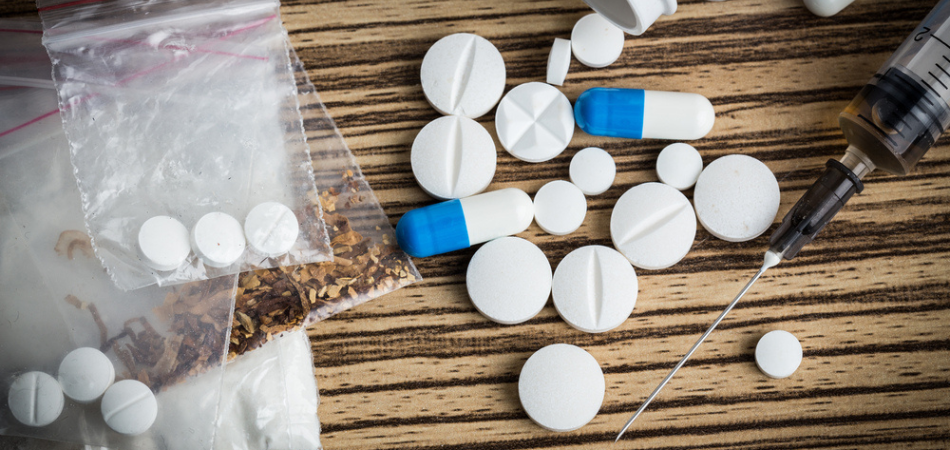
Written by:

Medically Reviewed by:
Last Updated:
September 18th, 2025
Drug addiction
Drug addiction remains a persistent problem, affecting countless people and communities worldwide regardless of economic, social or racial background. Beyond the physical and psychological damage caused, drug addiction can often lead to financial troubles, legal issues, and strained relationships, eroding the life one once knew.
However, amidst these challenges, there is hope for a brighter future. Oasis Bradford stands ready to guide individuals back to a healthier path, providing unwavering support throughout the journey to recovery.
Understanding the nature of drug addiction
The addictive nature of drugs stems from their impact on the brain’s reward system, particularly the neurotransmitter dopamine. Drugs will artificially alter the brain’s dopamine balance, creating an abnormal positive reward response, leading to intense cravings.
Over time, the brain undergoes neuroadaptations that intensify drug-seeking behaviours, making it increasingly difficult to refrain from drug use. Consequently, the brain becomes dependent on the drugs you’re taking, impairing its ability to produce its own dopamine and resulting in uncomfortable withdrawal symptoms when tapering.
Ecstasy addiction
Known as a ‘party’ drug, causing temporary enhanced mood and excitement.
Cannabis addiction
A plant used for its psychoactive effects, relaxation, or medical use.
Cocaine addiction
A powerful stimulant drug that boosts energy, mood, and alertness.
Crack cocaine addiction
A potent form of cocaine that is smoked, causing intense, short highs.
Crystal meth addiction
A highly addictive stimulant drug causing intense, long-lasting euphoria.
Heroin addiction
A powerful opioid drug that causes intense euphoria and high addiction.
Ketamine addiction
A dissociative drug used medically, often abused for its hallucinogenic effects.
LSD addiction
A hallucinogenic drug that alters perception, mood, and thought processes.
Inhalant addiction
Inhalants are volatile substances that produce psychoactive effects.
Monkey dust addiction
Monkey dust is a synthetic stimulant causing euphoria and severe paranoia.
Steroid addiction
Steroids are synthetic hormones used to enhance muscle growth and performance.
Hallucinogen addiction
Hallucinogens are drugs that distort reality, causing vivid perceptions.
GHB addiction
GHB is a depressant that can induce relaxation, euphoria, and amnesia.
Examples of risk factors include:
- Early drug use: As the brain is still developing during youth, the impact of drugs can be more profound, making drug addiction more probable as you grow older.
- Abuse or trauma: Past experiences of abuse or trauma can lead to drug abuse as a means to escape reality, thereby increasing the likelihood of addiction.
- Genetics: Having a family history of drug addiction implies a genetic predisposition, which may raise your susceptibility.
- Mental health disorders: Individuals with mental health issues such as depression, anxiety, PTSD, or schizophrenia are more prone to developing drug addiction as they may turn to substances for self-medication.
If you or a loved one fall into any of these categories and feel you may have a drug addiction, you would benefit from contacting your doctor, a local healthcare provider, or the Oasis Bradford team.
The dangers of drugs
The dangers of drugs are prevalent and wide-ranging, impacting individuals and families alike. Drug abuse poses significant risks to both your physical and mental well-being, often leading to devastating consequences.
Dangers associated with drugs can include:
Understanding the dangers of drugs is crucial for prevention, early intervention, and seeking help to overcome your drug addiction.
What are the signs of drug addiction?
Drug addiction can manifest in various signs and symptoms, which can ultimately vary depending on the drug used and the individual’s unique circumstances.
Here are some common signs of drug addiction:
- Compulsive drug use
- Increased tolerance
- Withdrawal Symptoms, such as tremors, sweating, nausea, anxiety, irritability and insomnia.
- Neglecting responsibilities
- Notable changes in physical appearance
- Extreme mood swings
- Isolating from friends and family
- Financial problems
- Deterioration in health
It’s important to note that the presence of these signs does not definitively indicate drug addiction; however, if you or someone you know exhibits these signs, seeking help from a healthcare professional or drug rehab addiction treatment centre is strongly advised.
How can Oasis Bradford help with your drug addiction?
Various treatment options exist to support individuals in overcoming their drug addiction, and among them, inpatient rehab programmes are widely recognised as popular and effective choices.
At Oasis Bradford, we provide a secure and nurturing environment where individuals can embark on their healing journey, addressing past traumas and acquiring healthier behavioural patterns.
Our comprehensive drug rehab programme incorporates evidence-based therapies complemented by holistic activities like yoga, art therapy, meditation, and supervised drug detox. By addressing both the physical and psychological aspects of addiction, we strive to facilitate a well-rounded recovery process.
Contact us today
We understand the stronghold drug addiction can have on you, but rest assured; we are here to help.
Please contact us today if you identify signs of drug addiction or desire more information. Our compassionate team at Oasis Bradford is dedicated to guiding you through overcoming your drug addiction.
Frequently asked questions
- Craving: A strong desire or compulsion to use the substance.
- Loss of Control: Inability to limit or control the amount or frequency of use.
- Compulsive Use: Continued use despite negative consequences or harm.
- Chronic Relapse: A tendency to return to the addictive behaviour after attempts to quit.
These criteria help identify addictive behaviours and are often used in understanding the severity of substance use disorders.






















